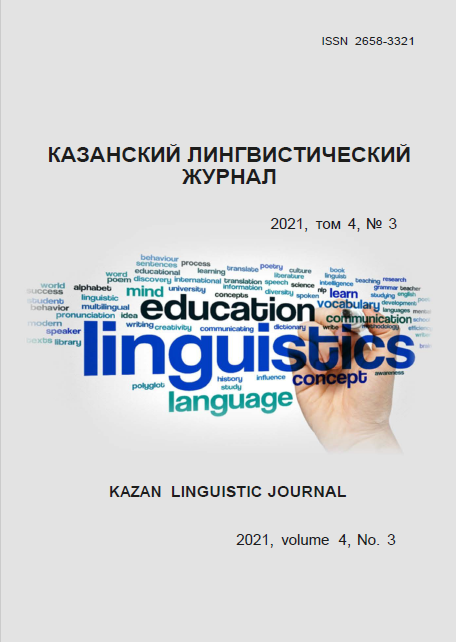The study of educational needs in the context of the educational process in higher school
https://doi.org/10.26907/2658-3321.2021.4.3.466-479
Keywords:
educational needs, motivation, individualization of education, educational process, personality-oriented approach, practice-oriented approach, problem-oriented approachAbstract
The generation of modern student youth in higher medical school is the future of healthcare in 7–10 years, and what it holds to us depends to a large extent on the success of the educational process, on the goals and objectives set, and the methodology for its implementation. The administration of universities, faculty, curators and tutors of student groups face the task to not only lay a stable basis of fundamental professional and applied knowledge, skills and methods of activities, but also to promote socialization, the formation of adaptability, autonomy, independence, and initiative of an individual. Despite the laws and postulates of education remain unchanged, the conditions of the transforming socio-cultural reality determine the urgent need to modernize the educational process, to enhance the educational potential of the university environment. In the formation of the socio-psychological maturity of the individual and the professional competence of future specialists, the problem of educational needs is of current importance. Educational needs are not universal and they are directly related to the value-meaning component of a person's motivation. Their identification and implementation in pedagogical practice are significant for the development of an individual educational trajectory and the determination of the vector of students' self-development. The article presents the results of a study of the personal significance of the educational needs in second- and fifth-year students of a medical university and proposes a prognostic model with the recommended level of their manifestation.
References
Bogoudinova R.Z., Kazakova U.A. Sociocultural context of information and communicative technologies: challenges and risks. Kazan: Vestnik Kazanskogo gosudarstvennogo universiteta kul'tury i iskusstv. 2021; (1): 6–11. (In Russ.)
Ratner F.L., Sigal N.G. Digitalization of education. Barriers and risks. Innovation and the quality of vocational education. Kazan: Obchestvo s ogranichennoj otvetstvennost’ju “Redakzionn-izdatel’skij centr “Shkola”. 2021: 44–46. (In Russ.)
Makarova O.Yu. Pedagogical system of professional education of students of medical universities: dis. ... Dr. ped. sciences. Kazan; 2014. (In Russ.)
Gavrilenko L.S., Chupina V.B., Tarasova T.I. “Educational needs”: theoretical analysis of definition. Sovremennye problem nauki i obrazovanija. 2016; (6). (In Russ.)
Ushinsky K.D. Collected works. 1948;(2). Available from: http://elib.gnpbu.ru/text/ushinskiy_sobranie-sochineniy_t2_1948/go,0;fs,0/ [accessed: 08.08.2021]. (In Russ.)
Khasanova G.B., Valeyeva N.Sh., Kupriyanov R.V. et al. Anthropological training as a means of formation of professional competence of a social worker. Kazan: Modern Journal of Language Teaching Methods. 2018; 8(10): 129–¬135. (In Russ.)
Knowles M.S. The modern practice of adult education. From Pedagogy to Andragogy. Chicago, New York: The Adult Education Company; 1980.
Makarova O.Yu., Gorbunova D.V. The role of a sense-value component of motivation in the professional selfdevelopment and the development of language adaptability of students of medical university. Kazan: Mir nauki. Pedagogika i psichologija. 2019; 7(5). (In Russ.)
Dresher Yu.N. Modern technologies in the preparation and implementation of the educational process: Study guide. Kazan: Medicina; 2017. (In Russ.)






